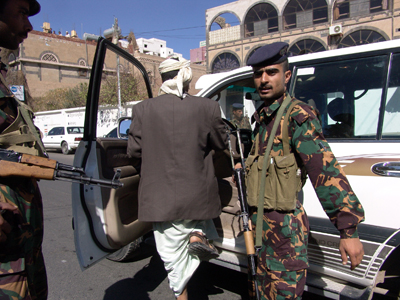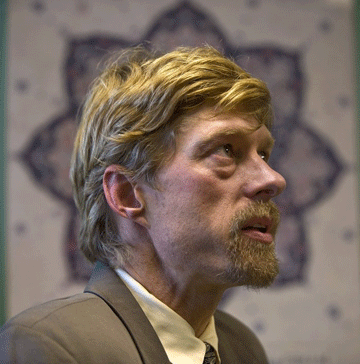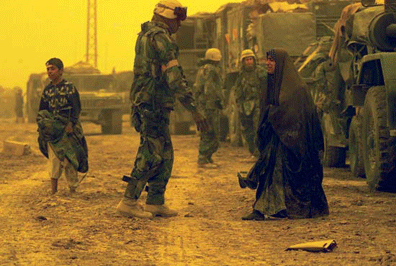
Yemeni security forces have apprehended thirty terrorist suspects over the course of ten days as part of a massive security sweep.
Security authorities launch massive sweep for al-Qaeda
Abdul-Aziz Oudah, Yemen Observer, Feb 3, 2009
The Ministry of Interior has announced a comprehensive campaign against all suspected al-Qaeda hideouts, following last week’s declaration of the appointment of Nasser al-Wahishi, who has been wanted by Yemeni security since 2006, as the new Amir for Arabia. His compatriots include the former Saudi Guantanamo detainees, Saeed al-Shihri and Mohammed al-Aofi, who escaped Saudi Arabia several months ago.
The manager of the security section at the Ministry of Interior, General Mohammed al-Qosi, said security authorities are observing sites where the organization is likely to be hiding, indicating that public cooperation has been helpful in locating these hideouts. Al-Qosi added that the al-Qaeda threat is not something new in Yemen, but rather has been present for many years. Continue reading Security authorities launch massive sweep for al-Qaeda






